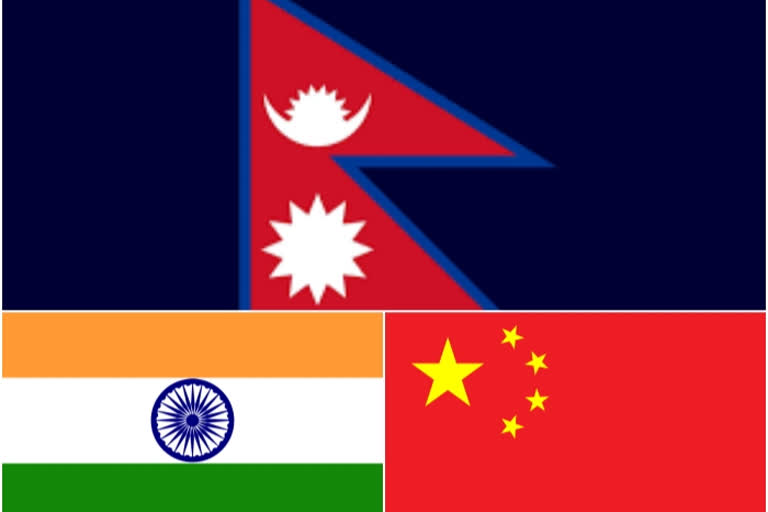New Delhi: Amidst many twists and turn and political turmoil in Nepal, Prime Minister KP Sharma Oli has for the third time sworn in as the Prime Minister of Nepal after he lost a vote of confidence in the Parliament.
Now the question that arises here is what this would it mean to India in the geopolitical context as the power struggle continues in Nepal.
Speaking to ETV Bharat, India’s former special envoy SD Muni opined that India is backing and wants Oli to continue.
Read:| KP Sharma Oli sworn in as Nepal Prime Minister
“Oli have to prove his vote of confidence in coming 30 days in the house as per the Constitutional provisions. He is still an interim Prime Minister but in my view, India is backing and wants Oli to continue. And if nothing happens, Oli will dissolve the Parliament, go back to the election and better watch what happens after the election,” SD Muni said.
"I do not think Oli can easily get a vote of confidence in the house and there are not many who will back him now. That being the situation, Oli has to dissolve the parliament and go for election," he added.
Therefore, much would be decided during the election as to what India thinks would be in its favour to have Nepali Congress or the UML or others, because, I indicate that Mahanta Thakur who is a Terrai leader and suppose to be very close to India, has not supported Oli or either of the parties. He has maintained to stay neutral, Muni explained.
On Monday, Oli, the Chairman of CPN-UML, lost a crucial trust vote in the House of Representatives. Oli will now have to take a vote of confidence at the House within 30 days, failing which an attempt to form a government under Article 76 (5) of the Constitution would be initiated.
When asked as to how the relation between Nepal and China would be given the political twist with PM Oli taking oath as Nepal’s PM, Muni said, “China’s relations are very deep. Although PM Oli has slowed down some of the BRI projects, China’s influence is very extensive and not very easy. That is the reason why India is supporting Oli in the hope that he will not back China”.
Nepal has to play a balancing game between the two Asian giants. For India, Nepal was a vital buffer between its borders and Chinese-controlled Tibet.
Read:| Oli reappointed as Nepal PM as Opposition fails to muster majority to form new govt
For China, Nepal was a country that provided a crucial entry point-a gateway—to Tibet and it wanted to ensure that Nepal with its significant Tibetan populace was always within its lap, and did not become a playful ground for anti-China rebels.
The year 2020 has been tiring, terrifying, tragic for Nepal and its political scenario as the democracy underwent some extraordinary changes with Prime Minister Oli’s decision to dissolve the Parliament on December 20, calling for fresh elections for April and May this year. This step was approved by President Bidya Devi Bhandari.
The move by Oli has dragged the Himalayan nation towards political instability and has drawn sharp criticism from many in the country and the international community.
Former ambassador Jitendra Tripathi said, “Even if Oli proves his majority, he will think twice before uttering anything against India because it is one of the reasons which backfired to him and he lost”.
Tripathi opines that it will be better for India if the leader of Nepali Congress is made the Prime Minister or is entrusted with important portfolios”.
“If Oli comes to power, certainly, he will not go much against India as he was during his earlier tenures. Oli will be compelled to tone down his utterances against India. In the context of China, it will try to revive its relation with Nepal and clandestinely, will try every bit to keep Oli under its thump”, he said.
Tripathi further underlined that in Nepal, both Prachanda and Oli had been accusing each other of being prompted by India, adding that now the relation is likely to be much better irrespective of whoever forms the government.
“If Oli comes to power, he will be sober towards India but I would say, Nepali Congress would have been slightly better than Oli’s prime ministership”, he added.
Earlier, Nepal’s President had asked the Opposition parties to come up with the support of majority lawmakers to form a new government by 9 pm on Thursday after Oli lost the vote of confidence in the House on Monday.
Until Thursday, Nepali Congress president Sher Bahadur Deuba, who got backing from CPN-Maoist Centre chairman Pushpakamal Dahal (Prachanda) was hopeful to get sufficient votes in the House to stake his claim as the next Prime Minister. But in a major twist, Deuba’s dream to become the next PM was shattered.
Read:| Nepal Prime Minister Oli loses vote of confidence in House of Representatives
The Nepal Communist Party was the ruling political party in Nepal and the largest communist party in South Asia and the third-largest in Asia from the formation of it in the year 2018 and till the dissolution in 2020.
Notably, NCP was founded on May 17, 2018, from the unification of two leftist parties, Nepal Communist Party formed by the merger of Oli led Communist Party of Nepal (Unified Marxist Leninist) and Prachanda led Communist Party of Nepal (Maoist centre).



